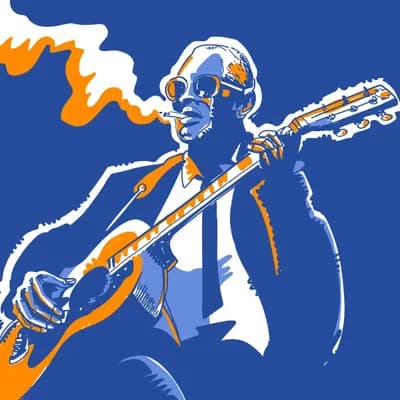
Reverend Gary Davis
30 April, 1896 – 5 May, 1972
As a mentor to many musicians, stories persist of Davis, stuffing wads of folk-festival earnings in his distinctive Gibson Jumbo guitar, or waving his firearm like a flashlight at unseen opponents. His standards of great players included the likes of Blind Blake and Lonnie Johnson, a standard which many would so he achieved.
MuseScore tabs
No data found